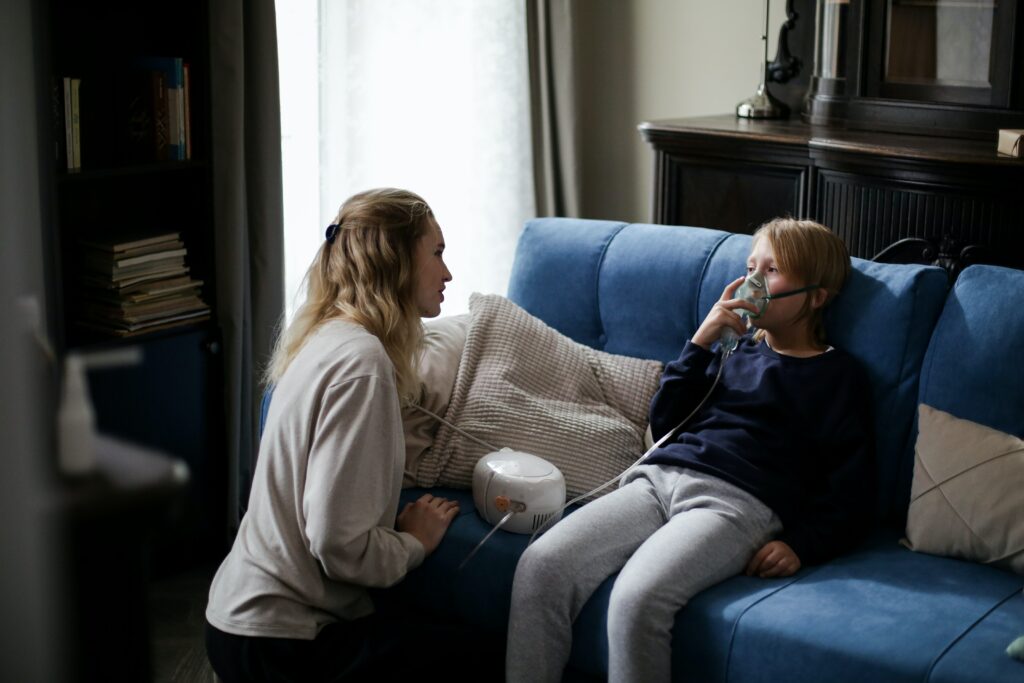 As a Certified Breastfeeding Counselor, it is important to stay up to date with evidenced-based information. As we know, science is always evolving in terms of what we understand. While the process of lactation does not change, what we understand about it does. Breastfeeding and childhood asthma have long been researched.
As a Certified Breastfeeding Counselor, it is important to stay up to date with evidenced-based information. As we know, science is always evolving in terms of what we understand. While the process of lactation does not change, what we understand about it does. Breastfeeding and childhood asthma have long been researched.
For years, we have seen a correlation between breastfeeding and a reduced risk in asthma, allergies, and other common childhood diseases. However, there has not always been clear research related to the duration of breastfeeding and the correlation between the risk of childhood asthma.
A new study in Annals of Allergy, Asthma and Immunology looked at the association between duration of exclusively breastfeeding and the risk of childhood asthma.
Exclusively Breastfeeding and Childhood Asthma Risk
Keadrea Wilson, MD, lead author of the study and Assistant Professor of Neonatology at the University of Tennessee Health Science Center, said:
“The results of the study indicated that the longer a mother exclusively breastfed, the lower the relative odds of her child having asthma, or asthma-related outcomes.”
Any exposure to breastfeeding is shown to have some protective effects in many areas of health. However, this study looked specifically at exclusive breastfeeding, and duration of exclusively breastfeeding.
On the results, Wilson said:
“There was a ‘dose-response’ effect depending on how long the mother breastfed: Babies that were breastfed for 2-4 months had only 64% likelihood of having as many asthma outcomes as those who were breastfed less than 2 months; those breastfed for 5-6 months had 61% likelihood, and those breastfed for more than 6 months had a 52% likelihood.”
Given that childhood asthma is a chronic and sometimes costly disease, it is not only a concern for families, but also a true public health issue. Research into reducing the risk of developing childhood asthma is important.
Will Breastfeeding Eliminate The Risk of Childhood Asthma?
Allergists and immunologists have been working hard to fully understand allergies and asthma. What they do know is that asthma (and allergies) run in families. In fact, having one parent with asthma makes a child three to six times more likely to develop asthma compared to children who do not have a parent with asthma.
As asthma tends to run in families, it can be important to find ways to reduce the risk of developing it. While the risk of developing asthma cannot be eliminated, the research is compelling that the overall risk can be reduced.
Interestingly, the research found that they did not see the same protective effect. “A further finding of the study was that duration of breastfeeding mixed with formula/juices/other foods (so not exclusively breastfed) did not provide the same level of protection,” says allergist Angela Hogan, MD, vice chair of the ACAAI Asthma Committee. Dr. Hogan was not involved in the research, though she did review it.
Was This a Thorough Study?
When we look at studies, it is important to look at the strengths and weaknesses of it. A big strength of this study was that it combined three studies. Between the three studies there were more than 2000 mother-baby pairs.
Another strength of this review was that between the three studies, researchers achieved demographic distribution. Meaning white, black, and Hispanic subjects were involved at a level like our population levels.
In research involving mother-baby pairs, most studies will be retrospective. By combining multiple studies to create a review, we get a larger volume of participants, more diversity, and strengths from each study. It also allows researchers to see if the outcomes were similar in each study.
What Can CBCs Do With Information About Breastfeeding and Childhood Asthma?
Given that asthma tends to run in families, it is worth parents having the information to make choices which could reduce risks. While exclusive breastfeeding does not always come easily, it has significant benefits. These benefits are more pronounced in families with an increased risk of asthma due to family history.
When educating clients in the prenatal period or during early lactation, sharing this information can be important as they navigate feeding options. It is also empowering information for clients to use if they feel pressured by a provider to introduce early solids, juice, or formula supplementation.
Not a certified breastfeeding counselor? Get started today! Our comprehensive CBC training will prepare you to support families in achieving healthy outcomes.